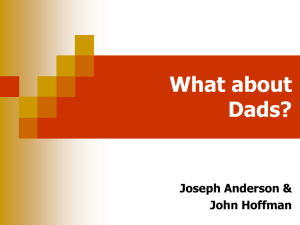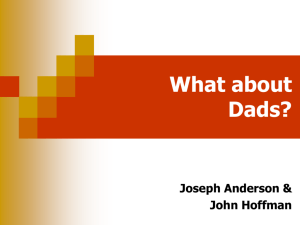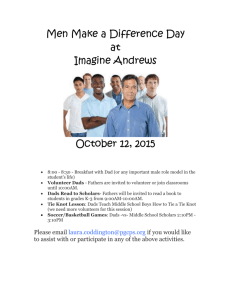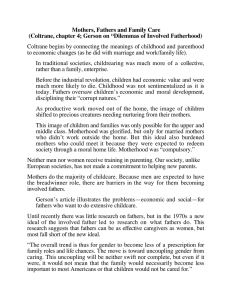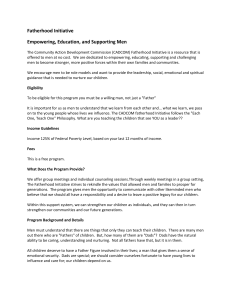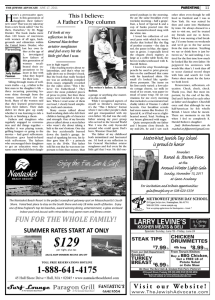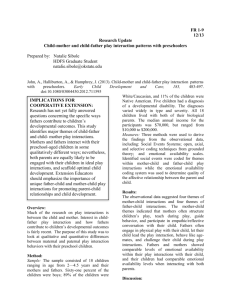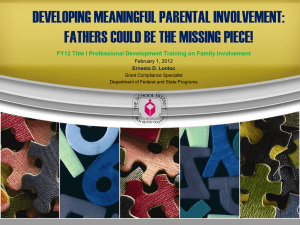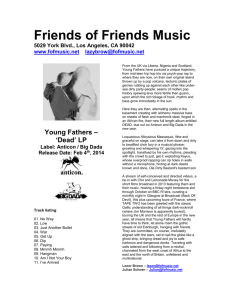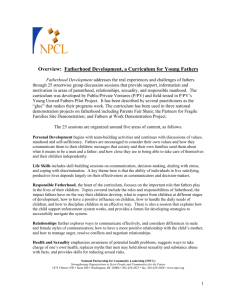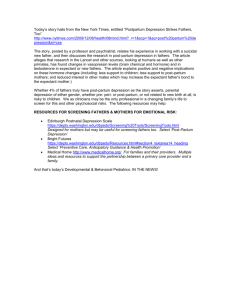KS2 Science Animal Dads: lesson Plan
advertisement
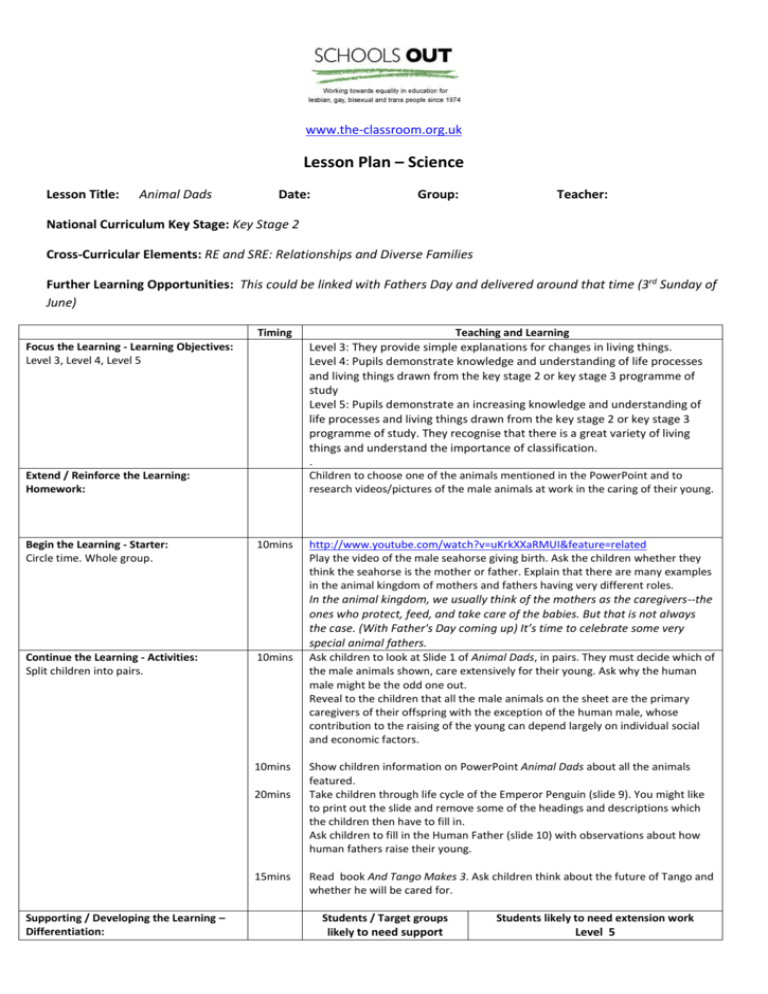
www.the-classroom.org.uk Lesson Plan – Science Lesson Title: Animal Dads Date: Group: Teacher: National Curriculum Key Stage: Key Stage 2 Cross-Curricular Elements: RE and SRE: Relationships and Diverse Families Further Learning Opportunities: This could be linked with Fathers Day and delivered around that time (3rd Sunday of June) Timing Teaching and Learning Level 3: They provide simple explanations for changes in living things. Level 4: Pupils demonstrate knowledge and understanding of life processes and living things drawn from the key stage 2 or key stage 3 programme of study Level 5: Pupils demonstrate an increasing knowledge and understanding of life processes and living things drawn from the key stage 2 or key stage 3 programme of study. They recognise that there is a great variety of living things and understand the importance of classification. . Children to choose one of the animals mentioned in the PowerPoint and to research videos/pictures of the male animals at work in the caring of their young. 10mins http://www.youtube.com/watch?v=uKrkXXaRMUI&feature=related Play the video of the male seahorse giving birth. Ask the children whether they think the seahorse is the mother or father. Explain that there are many examples in the animal kingdom of mothers and fathers having very different roles. Focus the Learning - Learning Objectives: Level 3, Level 4, Level 5 Extend / Reinforce the Learning: Homework: Begin the Learning - Starter: Circle time. Whole group. Continue the Learning - Activities: Split children into pairs. 10mins 10mins 20mins 15mins Supporting / Developing the Learning – Differentiation: In the animal kingdom, we usually think of the mothers as the caregivers--the ones who protect, feed, and take care of the babies. But that is not always the case. (With Father's Day coming up) It’s time to celebrate some very special animal fathers. Ask children to look at Slide 1 of Animal Dads, in pairs. They must decide which of the male animals shown, care extensively for their young. Ask why the human male might be the odd one out. Reveal to the children that all the male animals on the sheet are the primary caregivers of their offspring with the exception of the human male, whose contribution to the raising of the young can depend largely on individual social and economic factors. Show children information on PowerPoint Animal Dads about all the animals featured. Take children through life cycle of the Emperor Penguin (slide 9). You might like to print out the slide and remove some of the headings and descriptions which the children then have to fill in. Ask children to fill in the Human Father (slide 10) with observations about how human fathers raise their young. Read book And Tango Makes 3. Ask children think about the future of Tango and whether he will be cared for. Students / Target groups likely to need support Students likely to need extension work Level 5 Where appropriate, identify students and the methods of support and extension to be used. Include support staff meeting notes. Level 3 below Find actual video footage online of male animals raising their young. Celebrating the Learning - Plenary: Students demonstrate in some way what they have learned. Recognition of progress. Refer back to Learning Objectives. Refer back to the PowerPoint Animal Dads Slide 1. 1) Ask children to consider if any of these animals could raise the young without need of the mother at all. What level of participation might the mother have in the raising of tadpoles, fry, chicks, babies etc. 2) Is it possible for humans to raise a child without a mother / father? Can two mothers raise a child, or two fathers e.g. in And Tango Makes 3 PowerPoint Animal Dads (Worksheets Slides 9 and 10) Management of Resources Identify which resources are to be used and how. Include the use of new technology and the use of other supporting adults. Equal Opportunities & Social / Moral / Cultural considerations Identify any relevant aspects of the lesson which develop pupil understanding, skills and knowledge in these areas. Health and Safety Considerations Identify the major Health and Safety considerations and what needs to be done to ensure maximum safety. 10mins Children may be given extension research work to find other examples of male animal primary caregivers. And Tango Makes 3 written by Peter Parnell and Justin Richardson and illustrated by Henry Cole. Be aware of the diversity of families. Some pupils may not have a present father, some will have two fathers (biological and step), some may have 2 fathers who are in a relationship. Therefore the role of a father in each pupil’s life may be vastly different.
